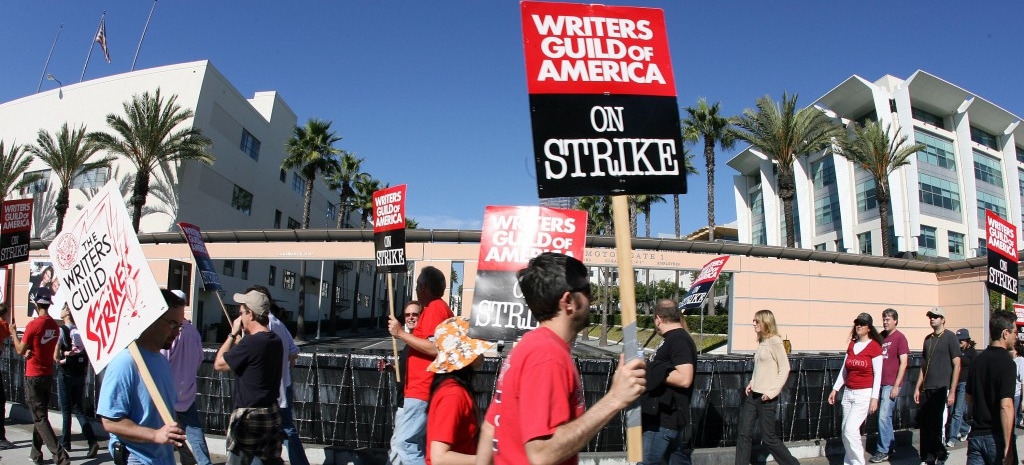
The Writer’s Guild of America officially went on strike Tuesday morning after negotiations between the group and major studios like Netflix broke down over the weekend. What this means for the industry as a whole depends on how long it takes the two sides to come to an agreement. For now, late-night talk shows and sketch comedy series like Saturday Night Live are set to go dark, while weekly network offerings might need to cut their seasons short. There could also be a pause in production on the streaming side of things as well as on the big screen, with in-the-works movies and shows grinding to a halt now that writers won’t be on-hand to make needed improvements to scripts while filming continues.
Hollywood hasn’t seen a writer’s strike in 15 years and, in that time, its business model has changed drastically. With the invention of streaming and on-demand services, a pivot to shorter theatrical windows, and the recent introduction of artificial intelligence, we’re still not sure when this strike might be resolved or what the consequences for film and television might be. What we do know is this: the WGA has been transparent about its demands for better pay and guaranteed work for its members while the major studios have been slow in coming to the negotiating table on some basic asks.
Chief among them, better pay.
It’s about writers getting their fair share.
It’s about maintaining a healthy middle/working class of writers in our industry.
It’s about showing our collective strength as new tech threatens to take away our leverage.
Vote YES on strike authorization.#WGAStrong pic.twitter.com/CBtbyNXsMH— Daniel Kwan (@dunkwun) April 3, 2023
As with the last strike, writers are seeking an increase in pay now that the streaming model has gutted residuals — money writers used to receive when a show was re-aired on TV — across the board. According to the WGA, thanks to platforms like HBO Max and Disney+, median writer pay has dropped 4% (23% when adjusted for inflation) with most writers “working at a minimum, regardless of experience” while top studio execs continue to grow their million dollar salaries.
“The companies have used the transition to streaming to cut writer pay and separate writing from production, worsening working conditions for series writers at all levels,” the WGA said in a bulletin sent to members. Not only has streaming lessened the number of episodes for a show per season making it difficult for writers to maintain a sustainable source of income, but streaming has also made it impossible for writers to make money from shows and episodes that used to be part of a network’s re-run schedule.
The WGA is also hoping to curb the trend of “mini-rooms” or shows that operate with just one or two writers/producers who script out multiple episodes, sometimes before a series is officially picked up or in between seasons in order to save on costs. These writers put huge amounts of effort and time into “breaking” a show — plotting its characters, storylines, etc — only to make minimum pay. It’s notoriously difficult for newer writers to make it into these “mini-rooms” too, which has led to fewer and fewer new voices entering the streaming space.
I’m incredibly proud of how transparent our union is. In the @WGAWest‘s strike announcement, we included a list of our proposals, and the AMPTP’s responses. Read it for yourself: it explains in black and white we’re forced to go on strike. pic.twitter.com/U2FLsv9Dob
— Adam Conover (@adamconover) May 2, 2023
The last writer’s strike lasted months and cost Hollywood millions in lost scripts, production freezes, and more. Here’s hoping the two sides can come back to the negotiating table before that happens again.
(Via NBC News)
